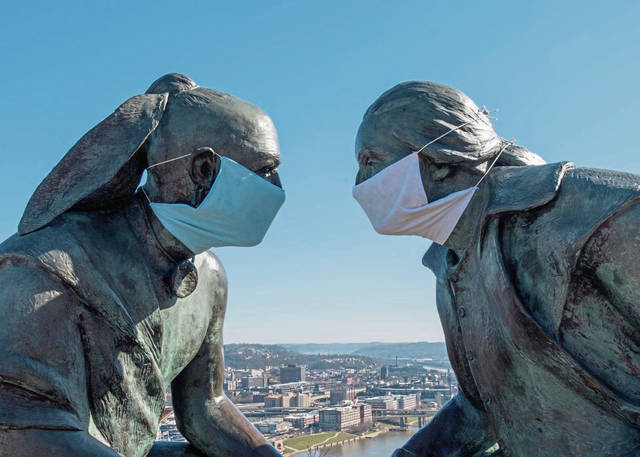On April 30, 1789, George Washington was sworn into office as the first president of the United States. His birthday of Feb. 22 became a federal holiday that gave way to the modern Presidents Day.
He had many things in common with the other 44 men whose roles we observe today.
Like him, seven others were born in Virginia. There were 11 other slave owners. Eleven either farmed or grew up on farms. Twenty-five were in the military, and 11 were generals. He contracted smallpox like Abraham Lincoln. Twelve served two full terms. He was married 40 years, until his death widowed his wife, like Franklin Roosevelt and Zachary Taylor.
Like most, he was wealthy. Like many, he spent much of his adult life serving his country — leading troops at Fort Necessity, being stationed at Fort Ligonier, meeting Seneca Chief Guyasuta near Pittsburgh.
But there was one line in the sand that separated him from the line of lawyers and legislators, governors and generals that followed.
Washington was not affiliated with a political party.
There were no parties when he took office just six years after the American Revolution ended. Those would start to pull in different directions, dividing like cells undergoing mitosis, during his tenure.
John Adams was the first president affiliated with a faction — the Federalists. When Democratic-Republican Thomas Jefferson took office in 1800, it was the first time U.S. power changed not just hands but ideologies.
As the years have rolled by, the parties have changed but the polar separation of power has stayed the same. We speak about presidents as Democrat and Republican as much as — maybe more than — we speak about them as the leader of the nation.
With local politics, we are closer to our leaders. Run for school board or borough council, and many people cross-file rather than declaring for just one party. You might vote for someone in New Kensington or Greensburg for 20 years with no real knowledge of whether they are actually one party or the other. You just know they stepped up to do a job that needed to be done.
That was what happened with Washington. He did not run for president. He was recruited for the position by other leaders of the day. He was practically drafted, not because of his party but because of his hard work in pulling the fledgling nation through the war.
The country needed someone to lead the government in one direction, not pull to one side or the other. Washington was the person to do that.
“(A political party) agitates the community with ill-founded jealousies and false alarms, kindles the animosity of one part against another, foments occasionally riot and insurrection,” the founding father warned in his farewell address in 1796.
Political parties will never go away. But Washington’s words still can be heeded as a caution for presidents tempted to put party before the real responsibility of the office.








